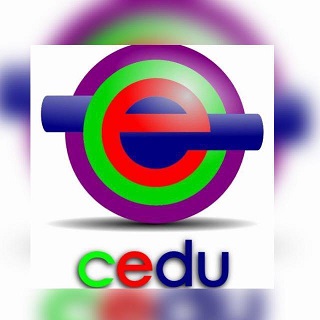THE USE OF ICT IN THE SOCIO-OCCUPATIONAL INCLUSION OF THE PERSON WITH AUTISM SPECTRUM DISORDER AND/OR OTHER DISABILITIES
Keywords:
Learning, Ethnography, ICTAbstract
The study investigated the topic of socio-labor inclusion of the person with Autism Spectrum Disorder and/or other disabilities with 10 individuals aged between 16 and 36 years who, in addition to being enrolled in the institution, were also attending the institution Casa da Esperança. The objectives were: a) to identify the use of ICT in the educational environment as a contribution to the learning process; b) how the use of ICT can contribute to social and labor inclusion. To this end, a qualitative research of an ethnographic nature was carried out. The data were collected over a period of time between August and October 2014. The educational organization was chosen for its work with children, adolescents and young people with ASD and/or other disabilities. The criterion for students to participate in the research is that they attend the computer room. There were also 03 individuals who, in addition to attending the organization, are subjects who work at the institution, making use of ICT and those who use it in the development of their work activities. The tool used to collect information was the use of a semi-structured questionnaire, containing sixteen questions, in which it was sought to know the student's profile, their educational level, age and type of disability, access to ICT, use of the computer room, use of educational games, if you have suffered some kind of prejudice and / or stigma, whether you work in the job market or not. In conclusion, the research offers elements that still need to be worked on so that the process of social and labor inclusion is a greater reality for people with disabilities.
Downloads
References
ANDRÉ, M. E. D. A. Etnografia da prática escolar. Papirus: São Paulo, 2010.
BATISTA, C. A. M. Inclusão: construção na diversidade. Belo Horizonte: Armazém de Ideias, 2004.
BERTOLIN, P. T. M. A discriminação às pessoas com deficiência nas relações de trabalho. Revista de direito do trabalho, São Paulo, SP, v. 32, n. 124, p. 166-182, out./dez. 2006.
BLIKSTEIN, P. Tecnologia e criatividade na sala de aula. Revista Gestão Educacional. São Paulo-SP-Brasil. Humana Editorial. Jul. 2012.
BOBBIO, N. A Era dos Direitos. Tradução Carlos Nelson Coutinho. Rio de Janeiro: Campus, 1992.
CARVALHO, R. E. Temas em educação especial. Rio de Janeiro. Ed. VWA. 1998.
CARVALHO, C. E. O.; HABOWSKI, A. C.; CONTE, E. A inclusão digital de crianças com múltiplas deficiências na escola. Revista Linhas, [S. l.], v. 20, n. 42, p. 153 - 176, 2019. Disponível em: https://periodicos.udesc.br/index.php/linhas/article/view/1984723820422019153. Acesso em: 21 mai. 2021.
CONGRESSO EUROPEU SOBRE DEFICIÊNCIA. Declaração de Madrid. Lerparaver, dezembro 2005. Disponível em: <http://www.lerparaver.com/madrid.html>. Acesso em 23 jan.2015.
GLAT, R. (Org.). Educação Inclusiva: cultura e cotidiano escolar. Rio de janeiro: 7Letras, 2007.
LAPASSADE, G. As Microssociologias. Série Pesquisa em Educação. Brasília: Liber Livro Editora, 2005.
MANUAL MSD – versão para profissionais de saúde. https://www.msdmanuals.com/pt-br/profissional/pediatria/dist%C3%BArbios-de-aprendizagem-e-desenvolvimento/transtornos-do-espectro-autista. Acesso em: 21.mai.2021.
MISSÃO PARA A SOCIEDADE DE INFORMAÇÃO (MSI). Livro Verde Para a Sociedade de Informação em Portugal. Disponível em: <http://www.pedroveiga.nome.py/LivroVerde1997.pdf>. Acesso em: 16 jul. 2012.
SOUZA JÚNIOR, M. Inovação Pedagógica: o uso de TIC na inclusão sócio-laborativa de pessoa com necessidade especial. 2015. Dissertação (Mestrado em Educação) - Universidade da Madeira – UMa. Funchal-PT, 2015.
________________. A influência de irmãos ouvintes no processo de integração social de irmãos surdos. 1998. Monografia (Especialização em Educação Especial) – Universidade Federal do Ceará – UFC. Fortaleza-CE, 1998.
VALENTE, J. A. (Org.). Liberando a mente: computadores na educação especial. Campinas: UNICAMP, 1991.
VEEN, W.; VRAKKING, B. Homo Zappiens: educando na era digital. Tradução Vinicius Figueira. Porto Alegre: Artmed. 2006.
WEIHS, T. J. Crianças que necessitam de cuidados especiais. Tradução Elaine de Marco. 2ª. ed. São Paulo: Ed. Antroposófica, 1991.
Published
How to Cite
Issue
Section
License
Copyright
The submission of originals to Cenas Educacionais (Educational Scenes - CEDU) implies the transfer, by the authors, of the publication rights. The copyright for the manuscripts published in this journal is the author(s), with CEDU rights over the first publication. Authors(s) may only use the same results in other publications by explicitly indicating CEDU as the means of the original publication.
Creative Commons License
Except where otherwise specified, the terms of a Creative Commons Attribution-ShareAlike 4.0 International License license apply to the material published in this journal, which allows unrestricted use, distribution and reproduction in any medium provided the original publication is correctly cited.






 This work is licensed with a License
This work is licensed with a License 